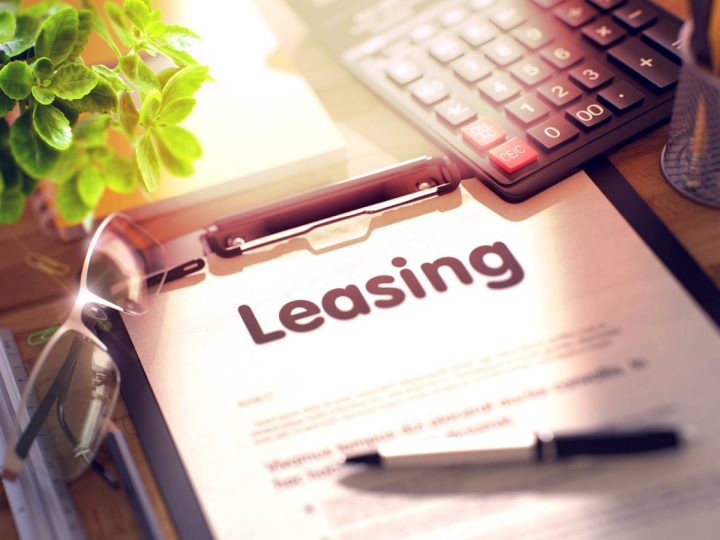The Pros and Cons of a Modified Gross Lease, Explained
The Federal Reserve reported that banks had 2.38 trillion in loans related to commercial real estate in a 2020 survey.
Given the country’s economic fluctuations, most property owners have been requesting the banks to restructure the loans. Another option that landlords have been embracing is modified gross leases to cut down their expenses.
A modified gross lease is a commercial renting approach that can be favorable to both the tenant and landlord. If you’re new to a modified gross lease, this guide will help you.
Keep reading to know more about the modified gross lease, its pros, and cons.

What Is a Modified Gross Lease?
A modified gross lease refers to a lease structure where both the tenant and the landlord pay for a property’s operating expenses. Some of the operating costs that a commercial tenant is responsible for include interior maintenance and utilities. Modified gross leases are common in commercial spaces where there are multiple tenants.
The modified gross lease is somewhere between a net lease and a gross lease. Tenants often pay expenses related directly to their units, while landlords address the overall operating costs.
You might want to research more about the modified gross lease vs. triple net and the full-service lease to know their differences. The primary distinction in these types of leases is the roles played by the parties.
Modified gross leases are different depending on a business or commercial building. The landlord often comes up with the modifications. This leasehold has its advantages and disadvantages for both the property owner and the tenant.
Pros and Cons of Modified Gross Lease
Now that you know what is a modified gross lease, understanding its benefits and shortcomings is crucial. It will help you establish if you’re ready for it, either as a landlord or a tenant.
Here are the pros of modified gross lease:
Tenant
Tenants often have more budgeting control under the modified gross lease as the landlord is in charge of maintenance. The corporate tenant controls the expenses affecting their business operations, such as business taxes and rent. One doesn’t have to incur unanticipated costs.
The modified gross lease further allows a tenant to save money. When you’re paying your utility usage, it is possible to enhance efficiency.
Tenants prefer the modified gross lease as they won’t be responsible for the building’s maintenance. As such, they can focus on the business operations and other pressing needs.
The flexibility of this type of lease makes it quite attractive to tenants. Given that there are no set guidelines on a modified gross lease, tenants should have everything in writing before signing this lease agreement.
Landlord
One advantage of a modified gross lease that is attractive to landlords is controlling a significant aspect of the property while still having clients paying for some expenses. The landlord can take responsibility for costs such as property tax.
As a property owner, it would be best to handle expenses that affect your property. The modified gross lease allows for this flexibility.
The modified gross lease allows landlords to rest easy with the assurance that their property is under the best maintenance. With some tenants’ unreliability with maintenance and repairs, having them handle some of these concerns can ease the burden on the property owner.
Cons of Modified Gross Lease
The terms of a modified gross lease vary from one property to the other. It is crucial for the parties involved to discuss all the intricacies involved. It will help tenants ask for clarity if they don’t understand some of the clauses.
Besides the benefits that tenants and landlords enjoy under the modified gross lease, there are drawbacks that one can’t ignore.
Tenant
A 2020 survey showed that nearly half of the U.S. commercial retail rents went unpaid in May. The situation escalated through the year due to the pandemic. For tenants, rent is already an overwhelming expense, and adding other costs can be daunting.
With the modified gross lease, tenants share the building’s financial responsibility. This setup can expose them to a range of business losses and financial vulnerabilities, especially during economic uncertainties.
Tenants further lack adequate control over some aspects of the property that affect their business. If the investor is in charge of maintenance, you might not get the services you need on time if a landlord doesn’t deem it necessary.
Contrary to a typical gross lease, costs in a modified gross lease tend to fluctuate. These unanticipated changes can have adverse effects on your financial plans, especially if you’re a small business. You might also incur higher costs than usual if the landlord overestimates costs.
Landlord
One of the setbacks of the modified gross lease among landlords is handling most of the financial responsibilities. Tenants mainly deal with costs related to utilities and repair, while landlords take up more hefty expenses.
The property owner needs to invest adequate resources and time further to keep the building running. They are exposed to financial risks as unexpected costs can crop up at any time. The modified gross lease has significant risks that an investor should understand before renting out a commercial space.
If the landlord fails to value the property right, it is possible to charge less rent. As a result, the building will end up with poorly maintained interiors. The upkeep and maintenance will end up being quite high once the tenant vacates.
For landlords, the triple net lease would arguably be the most stable. The variable costs would shift to the tenants, meaning that a landlord won’t struggle with variable cash flow.
Understanding Modified Gross Lease Is Crucial for Tenants and Landlords
It’s not surprising to find tenants and landlords who don’t understand the modified gross lease meaning and its impacts. Without the correct information, either party might sign a deal that could potentially undermine their business. It would be best to know more about a modified gross lease.
You can weigh the pros and cons of a modified gross lease to see if it will favor you as an investor or tenant.
Keep exploring our site for a range of articles on travel, business, and daily life.


